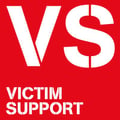Trainer volunteer roles in wheaton aston, staffordshire
Actively Interviewing
This organisation is scheduling interviews as applications come in. They're ready to hire as soon as they find the right person. Don't miss your opportunity, apply now!
We are looking for volunteers (21yrs+) to befriend a child or young person in care or leaving care. To provide opportunities for them to develop a meaningful. long-term relationship.
W E A R E L O O K I N G F O R S O M E O N E W H O
Can establish a positive, stable and long-term relationship with a young person.
Is reliable, non-judgemental, a good listener and able to engage with a child/young person.
Can promote the young persons developmental, social, emotional, cultural and religious needs.
Can value and respect the wishes and feelings of the child or young person and where necessary can advocate on their behalf.
Can adhere to policies and procedures at all times with emphasis on confidentiality, safeguarding, health & safety and relevant local authority procedures.
Is 21+ years old Has a full UK driving licence and access to a vehicle.
W H A T C A N I E X P E C T T O B E D O I N G ?
Meeting with the young person on a regular basis in the community for a couple of hours.
Engage with the young person in recreational/educational and fun activities.
Help them to explore new experiences to build their self-confidence and self-esteem.
Act as a positive role model for the young person.
W H A T A R E T H E B E N E F I T S
You will receive a thorough induction programme and training for the role.
You will receive quarterly supervisions and ongoing support from a member of the team.
You will make a real difference to a young persons life.
You will have opportunities to meet with other volunteers and young people.
Out of pocket expenses will be reimbursed.
The client requests no contact from agencies or media sales.
Actively Interviewing
This organisation is scheduling interviews as applications come in. They're ready to hire as soon as they find the right person. Don't miss your opportunity, apply now!
Are you an Italian speaker looking for a meaningful way to give back to your community?
We invite you to become a volunteer for our Talking Bubble Project!
Many older adults and vulnerable individuals in the UK’s Italian-speaking community experience loneliness and isolation. By giving just a small amount of your time each week, you can make a big difference — offering companionship and a friendly voice in their native language.
�� What is the Talking Bubble Project?
A phone-based service that connects volunteers with individuals who may feel isolated or lonely. Through regular calls, you’ll help build friendships, brighten someone’s day, and offer emotional support — especially for those more comfortable speaking Italian.
�� Why volunteer with us?
✔ Support members of the Italian-speaking community in the UK
✔ Make a real difference in someone’s life
✔ Enjoy flexible volunteering hours
✔ Receive training, ongoing support, and a reference upon completion
✔ Boost your own sense of fulfilment and purpose
✅ What’s required?
✔ Completion of online Safeguarding Adults Level 2 training (funded by us)
✔ A DBS check (funded by us)
✔ A kind and compassionate approach, and a willingness to engage in friendly conversations
�� How to get involved:
Apply through the CharityJob website — no previous experience needed.
This opportunity is open to UK residents only.
Help us bring connection and kindness to the Italian-speaking community across the UK!
Actively Interviewing
This organisation is scheduling interviews as applications come in. They're ready to hire as soon as they find the right person. Don't miss your opportunity, apply now!
Can you help us by providing a calm, safe, and caring environment for our small furries whilst we find them their fur-ever home?
Often when we think about animal fostering, cats, and dogs spring to mind, but have you ever thought about fostering our smaller animals? The RSPCA received more than 5,000 reports last year about rabbits and other small furries relating to neglect or abandonment and rescued an average of 340 small furries a month! To help us with the rehoming of these small animals, we are actively looking to add to our fantastic team of volunteer fosterers.
As a small animal fosterer, you would play an essential role in providing the animals in our care with a temporary home whilst they are being rehomed. Like us, even small furries have specific needs and requirements, but rest assured, once we have guided you through the fostering process the animal centre will ensure that you have all the necessary guidance, equipment, food, and veterinary care.
What You’ll Be Doing:
-
Provide them with care, safe suitable housing, and space for playtime, as outlined in our policies and guidelines.
-
Ensure that they are groomed if appropriate and fed and watered.
-
Provide them with suitable and clean bedding to keep them cosy.
-
Give them lots of attention and plenty of cuddles as they are very sociable animals.
What We’re Looking For:
-
Volunteers aged 18 or over who have had plenty of experience of caring for animals.
-
Fostering experience is beneficial but not essential as training is provided.
-
For their wellbeing, our small furries may need to be fostered in pairs, so please bear this in mind.
-
Any existing pets or animals need to have been spayed/neutered (some medical reasons may mean they cannot be so, please let us know if this is the case).
-
You should be located in South Buckinghamshire or within a reasonable distance.
What’s in It for You?
-
You will be making a massive difference to the welfare of the small animals in your care.
-
Join a community which will enable you to meet new people and make new friends.
-
Learning new skills through our comprehensive induction and fostering training programme.
-
Enhance your CV by adding your volunteering experience and newly acquired skills.
-
The RSPCA is happy to reimburse you for any pre-agreed expenses that you may incur through volunteering for us.
Practical Considerations:
-
Health & Safety: You’ll need to complete a simple online Health & Safety course before starting the role.
Disclaimer:
Our voluntary roles are subject to:
-
An informal interview and trial period.
-
Submission of two referees’ contact details.
-
Completion of relevant training and assessments for the role.
The client requests no contact from agencies or media sales.
Actively Interviewing
This organisation is scheduling interviews as applications come in. They're ready to hire as soon as they find the right person. Don't miss your opportunity, apply now!
Join the pack. Lend a hand. Change lives. Join your local fundraising group as a volunteer.
Are you looking for a volunteering opportunity where you can meet new people and raise funds that will change lives? Join a Guide Dogs group near you for fun, fundraising and four-legged friends.
Did you know it costs £102,000 to raise, train, and support a guide dog from birth to retirement.
We have a range of roles from being a group member, to taking on a lead role such as Group Coordinator, Deputy Coordinator, Treasurer, Merchandise Coordinator or Collection Box Coordinator.
Why become a fundraising volunteer:
As well as making a huge difference to people’s lives, volunteering with your local Guide Dogs fundraising group is a great way to spend some of your free time and give back.
- Inspire people to support Guide Dogs and make a difference to someone with sight loss.
- Have fun finding new events and places to volunteer at.
- You’ll meet lots of special dogs – from young puppies in training to incredible guide dogs in partnership.
- You’ll empower others to get involved with Guide Dogs.
- You’ll learn new skills and we’ll provide all the training you need for your role.
- You can take on as much or as little as you want, and you can fit the role around your other commitments.
Who you are:
We appreciate our volunteers’ passion and energy, but we also value your unique skills, perspectives and personalities.
- Inspire others: Do you have lots of ideas that could motivate others? We need more inspirational volunteer leaders and fundraisers who can bring their energy and unique perspective to our local fundraising groups.
- Bring your skills: Could you help organise a calendar of events, take care of ordering merchandise, or count the funds raised by your local team? We need more volunteer treasurers, secretaries, and merchandise coordinators to support our fundraising groups.
- Help take Guide Dogs into your community: Are you well connected or do you love going to new places and meeting new people? We need more volunteer fundraisers to help at our events and spread the word about our work.
Training and pre-agreed expenses available.
Visit our webiste to see what roles are available where you live.
The client requests no contact from agencies or media sales.
Actively Interviewing
This organisation is scheduling interviews as applications come in. They're ready to hire as soon as they find the right person. Don't miss your opportunity, apply now!
Last year 786,574 people were offered information and support from Victim Support. As a Service Delivery Volunteer you will provide specialist support services for people affected by crime.
- Make a difference - you will volunteer directly with victims and/or alongside staff.
- Gain skills and experience - you will receive training on how to provide practical and emotional support.
- Join our community - you will be part of a large community of over 1,500 volunteers and staff.
- Beyond your role – attend one or our many events/webinars and join one of our six Equality, Diversity & Inclusion networks.
What do we ask of you?
In order to join us as a Service Delivery Volunteer, you must:
- Be 18 years of age or over.
- Be able to volunteer for at least 3 hours per week, for at least 12 months.
- Undertake training over a 10-week period – this includes five virtual training days as well as completing a workbook and online learning modules.
- Undertake an enhanced DBS check & be part of the DBS update service.
- Be able to provide two satisfactory references.
- Have an active email address that you are comfortable using in order to engage with VS communications.
Expenses
- All Victim Support volunteers are entitled to out-of-pocket expenses incurred whilst volunteering, including travel and lunch.
Diversity Matters
- VS strives to represent the diverse communities we serve and are passionate about creating an environment where all staff and volunteers feel respected and heard. Being a diverse organisation with an inclusive culture is integral to us being able to meet our aim of ensuring that anyone who is a victim of crime gets the support they need.
- VS is also a Disability Confident Employer and we provide a Guaranteed Interview Scheme for candidates that are disabled and meet all essential criteria for a role.
- We are happy to make reasonable adjustments to support you through the application process.
The client requests no contact from agencies or media sales.
Actively Interviewing
This organisation is scheduling interviews as applications come in. They're ready to hire as soon as they find the right person. Don't miss your opportunity, apply now!
Treasurer and Trustee sought for Trauma Aid UK, a leading charity dedicated to training in underserved countries affected by war, conflict and disaster.
What will you be doing?
We are looking for a dedicated and detail-oriented individual to serve as a Trustee and the Treasurer of Trauma Aid UK. The Treasurer will be responsible for overseeing the financial management of the charity, ensuring compliance with regulatory requirements, and advising the Board of Trustees on financial matters. This is not an accounting or book-keeper role and does not require access to bank accounts.
The Trustee/Treasurer role is to support the financial stability and integrity of our organization. Knowledge of UK legalities surrounding charity financial transactions and the Charity Commission an advantage. The Treasurer is required to be UK based and we request UK citizenship as the evidence of right to work in the UK. A DBS check will be required.
As a leading training provider since 2009, we work in partnership with local mental health professionals through training, supervision and advanced workshops to build a network of qualified and experienced therapists who can offer treatment and train others in evidence-based trauma therapy. We are currently working in Bosnia & Herzegovina and Arab Countries.
Time commitment : Approximately 9 meetings per year (every 5-6 weeks minus holidays periods and summer)
About 1 hour per month. Working from home but occasional in person Strategy meeting, typically annually and in London (next meeting is January 24th 2026).
Key Responsibilities
- Advisory Role: Provide financial advice to the Board of Trustees on the implications of decisions and initiatives.
- Compliance: Complete the annual online return to the Charity Commission, detailing the charity's income, expenditure, and trustee information.
Before you apply
Why are the applicants interested in this role with Trauma Aid UK and relevant trustee or Treasurer experience, although those with no previous experience in this role are welcome to apply as long as the necessary skills and qualities mentioned are evident.
The client requests no contact from agencies or media sales.
Are you looking for a meaningful, flexible way to support others? Join the Talking Bubble Project and help tackle loneliness through the power of a simple phone call.
Since the pandemic, many befriending services have wound down—but Talking Bubble remains one of the few projects still offering regular, phone-based companionship to those who need it most. Demand for this kind of support remains high, and we’re actively looking for kind, compassionate English-speaking volunteers to help meet this growing need.
What is the Talking Bubble Project?
☎︎ It’s a phone-based befriending service that connects volunteers with older adults and vulnerable individuals across the UK who are experiencing loneliness and social isolation. By committing just a little time each week, you can offer someone the warmth of conversation and a regular point of connection.
Why Volunteer With Us?
✔ Make a genuine impact on someone's life
✔ Enjoy flexible volunteering hours from the comfort of your home
✔ Receive full training, ongoing support, and a reference upon completion
✔ Boost your sense of purpose and community
What You’ll Need
✅ No experience required—just a kind heart, a listening ear, and a willingness to talk
✅ Volunteers must complete Safeguarding Adults Level 2 training and undergo a DBS check—we cover the cost of both
✅ Must be a UK resident
How to Get Involved
Apply now via the CharityJob website, or contact us directly for more information. Together, we can keep connection alive—one call at a time.
The client requests no contact from agencies or media sales.
Actively Interviewing
This organisation is scheduling interviews as applications come in. They're ready to hire as soon as they find the right person. Don't miss your opportunity, apply now!
Last year 786,574 people were offered information and support from Victim Support. As a Service Delivery Volunteer you will provide specialist support services for people affected by crime.
Why volunteer with us?
- Make a difference - you will volunteer directly with victims and/or alongside staff.
- Gain skills and experience - you will receive training on how to provide practical and emotional support.
- Join our community - you will be part of a large community of over 1,500 volunteers and staff.
- Beyond your role – attend one of our many events/webinars and join one of our six Equality, Diversity & Inclusion networks.
Volunteering with Victim Support in West Yorkshire
As a Volunteer in West Yorkshire you will:
- Be working on all crime types.
- Become trauma informed.
- Learn about the work of criminal justice agencies.
- Progress by specialising in specific crime types (e.g. Domestic Abuse, Sexual Violence, Hate Crime, Children and Young People, Homicide and Road Death, and Major Incident.)
- Community Engagement and networking opportunities.
- Be able to attend local volunteer team meetings
- Annual Milestone Awards.
What do we ask of you?
In order to join us as a Service Delivery Volunteer, you must:
- Be 18 years of age or over.
- Be able to volunteer for at least 3 hours per week, for at least 12 months.
- Undertake training over a 10-week period – this includes five virtual training days as well as completing a workbook and online learning modules.
- Undertake an enhanced DBS check & be part of the DBS update service.
- Be able to provide two satisfactory references.
- Have an active email address that you are comfortable using in order to engage with VS communications.
Expenses
- All Victim Support volunteers are entitled to out-of-pocket expenses incurred whilst volunteering, including travel and lunch.
Diversity Matters
- VS strives to represent the diverse communities we serve and are passionate about creating an environment where all staff and volunteers feel respected and heard. Being a diverse organisation with an inclusive culture is integral to us being able to meet our aim of ensuring that anyone who is a victim of crime gets the support they need.
- VS is also a Disability Confident Employer and we provide a Guaranteed Interview Scheme for candidates that are disabled and meet all essential criteria for a role.
- We are happy to make reasonable adjustments to support you through the application process.
The client requests no contact from agencies or media sales.
Actively Interviewing
This organisation is scheduling interviews as applications come in. They're ready to hire as soon as they find the right person. Don't miss your opportunity, apply now!
Location: Shepherd’s Bush, West London
Time Commitment: Approx. 1–2 days per month (including quarterly board meetings and annual Away Day)
Type: Voluntary
Start Date: Early 2026
Join a unique West London charity creating lasting change in people’s lives
The Upper Room is seeking a Chair of Trustees (Designate) to join our Board in 2025/26 and, after a year of active trusteeship and shadowing, to step into the role of Chair when our current Chair reaches the end of their tenure in 2027.
This is an exceptional opportunity for a passionate, values-led individual to help shape the next phase of our work, from strategic resilience to community innovation.
About Us
From small beginnings more than 35 years ago The Upper Room has grown into a thriving charity with an annual budget of around £650K.
Food provision has always been at the heart of what we do. UR4Meals serves approximately 40,000 meals a year, operating five days a week.
UR4Driving works with ex-offenders and young people identified as at risk of offending. We help them pass their driving theory test, and then provide free driving lessons. Last year 37 students gained a full driving licence with us. This has a significant impact on their employability and self-esteem, and dramatically reduces re-offending.
UR4Jobs helps people become work-ready, and supports their wellbeing.
We are still based in our original home at St Saviour’s Church near Shepherd’s Bush in west London.
About the Role
As Chair, you’ll lead a committed and skilled Board of Trustees, working closely with our CEO and senior team to guide strategy, ensure good governance and champion our impact.
You’ll also play a key role externally, acting as an ambassador to funders, partners and supporters.
We’re looking for someone who can
- Provide strategic leadership through a period of growth and innovation
- Foster a culture of inclusion and respect, both on the Board and across the organisation - Support and challenge the CEO, acting as a critical friend and sounding board
- Ensure excellent governance, compliance and risk management
- Represent the charity publicly, building relationships and influence
About You
We welcome candidates with prior Board experience as a Trustee, Chair or Non-Executive Director, and a strong commitment to social justice.
We especially encourage applications from those with lived experience of disadvantage, as well as those from under-represented backgrounds, including individuals from Black, Asian and minority ethnic communities.
We’re interested in candidates with
- A clear understanding of charity governance and the role of a Chair
- Strong leadership and interpersonal skills
- Strategic thinking and sound judgement
- A collaborative, values-driven approach
- The time, energy and commitment to make a lasting difference
Additional experience in fundraising, partnerships, organisational development or public sector engagement would be welcome, though not essential.
Time Commitment
- As a Trustee in 2025/ 26 (approx. 1–2 days per month)
- Transition to Chair in 2027, subject to mutual agreement and Board approval
- Quarterly evening Board meetings (in person in London)
- Annual summer Away Day with staff and trustees
- Optional involvement in sub-committees or events depending on interest and availability
- Representing the charity at local events
Why Now
By inviting a prospective Chair to join our Board as a Trustee in 2025/26, we can ensure a smooth, informed transition, with the support and handover of our current Chair, and plenty of time for deep onboarding and relationship-building.
The new Chair will help consolidate our growth, and lead our Board through the next chapter, ensuring our mission continues to serve those who need us most in the years ahead.
How to Apply
Please send your CV and a brief covering letter explaining your interest and suitability to the Upper Room.
If you would like to have an informal conversation before applying, feel free to reach out via email to arrange a call.
Because we are planning for the long term we are not placing a deadline on this process. However, we aim to appoint in the first quarter of 2026.
Interviews will be held in two stages, including an in-person meeting with key Board and staff members.
Making sure nobody, socially or financially excluded in West London goes without help, supporting those in need, enabling those with potential




The client requests no contact from agencies or media sales.
Actively Interviewing
This organisation is scheduling interviews as applications come in. They're ready to hire as soon as they find the right person. Don't miss your opportunity, apply now!
Wheels for All is a national charity that helps people of all abilities enjoy cycling in a way that works for them. Supporting more than 100 inclusive cycling hubs with over 30 years of experience, we’ve seen first-hand how cycling can change lives - improving health, confidence and community connection.
We’re now growing our national reach and impact, and we’re looking for new Trustees to join our Board and help guide us through this exciting next stage.
About the role
As a Trustee, you’ll help shape the direction of the charity, support good decision-making, and make sure we stay focused on our mission to make cycling accessible for everyone. We’d especially like to hear from people who:
- Have experience in communications, PR, campaigning or public engagement, and can help us share the power of inclusive cycling with more people across the UK
- Have strong networks or local knowledge in areas that are currently least well served by inclusive cycling - especially the North East, East Midlands or South West
If that’s not your background, please don’t be put off. We welcome people from all walks of life who share our passion for inclusion and want to make a difference.
Our Trustees also get involved in one or more of our focus groups, including:
- Governance and Risk
- Nominations, People and EDI
- Welfare, Safety and Safeguarding
- Finance
- Income Generation
We follow the Tier 3 Code for Sports Governance, which means we’re serious about running the charity to the highest standards - but we do it in a supportive, friendly and collaborative way. Full induction and training is provided.
Who we’re looking for
You don’t need to have been a Trustee before - we’ll help you learn the ropes. You just need to bring:
- A thoughtful, practical approach
- Willingness to ask questions and share ideas
- The ability to work well with others
- Commitment to equality, inclusion and fairness
- A bit of time and energy to get involved
How to apply
- Apply via othe link, and please upload your CV and a cover letter showcasing how you’re the perfect fit for the role
The client requests no contact from agencies or media sales.
Actively Interviewing
This organisation is scheduling interviews as applications come in. They're ready to hire as soon as they find the right person. Don't miss your opportunity, apply now!
While gaining invaluable experience, practice your passion within real-life scenarios.
Join a group who aspire to think big, have fun, and create work that stands out. We’re looking for a passionate dedicated individual to join our team, who will play a key role in the growth of our brand messages and visions. The ideal candidate will assist us to conduct research and gather information on various projects.
Responsibilities
Conduct relevant research, gather information on various projects
Write research reports
Working closely with the communications team
Requirements
Good attention to detail.
Strong verbal, written and organisational skills.
Self-starter, dedicated and willing to learn.
Microsoft Word and Excel skills.
Please note the role is a voluntary position and could be entirely remote. Any incurred reasonable expenses will be paid.
ABOUT TESYouth
TESYouth (Training, Employment Opportunities & Social Development for Youth) is a NFP social enterprise which focuses on improving the rate of youth employment, through volunteering, interactive and skill-based workshops, work-experience and training programmes. Together with our strategic partners, we collaborate with organisations to provide youth to develop their skills, and to assist in achieving their career aspirations.
Tackle and reduce youth unemployment by providing with the necessary tools to develop skills, aptitudes, knowledge and self-confidence.
The client requests no contact from agencies or media sales.
Actively Interviewing
This organisation is scheduling interviews as applications come in. They're ready to hire as soon as they find the right person. Don't miss your opportunity, apply now!
Are you an Albanian speaker looking for a meaningful way to give back to your community?
We invite you to become a volunteer for our Talking Bubble Project!
Many older adults and vulnerable individuals in the UK’s Albanian-speaking community experience loneliness and isolation. By offering just a small amount of your time each week, you can make a big difference by providing companionship and a friendly voice in their native language.
What is the Talking Bubble Project?
☎︎ A phone-based service that connects volunteers with individuals who may feel isolated or lonely. Through regular phone calls, you’ll have the opportunity to build friendships, brighten someone’s day, and provide much-needed emotional support—especially for those who feel more comfortable speaking Albanian.
Why volunteer with us?
✔ Support members of the Albanian-speaking community in the UK
✔ Make a meaningful impact on someone’s life
✔ Enjoy flexible volunteering hours
✔ Receive training, ongoing support, and a reference upon completion
✔ Enhance your own sense of fulfilment and purpose
Requirements:
✔ Volunteers must complete an online Safeguarding Adults Level 2 training and undergo a DBS check—both fully paid for by the organisation.
How to get involved:
Simply apply through CharityJob’s website. No previous experience is required—just a friendly, compassionate nature and a willingness to listen.
✔ Open to UK residents only.
Help us spread kindness and connection within the Albanian-speaking community across the UK!
The client requests no contact from agencies or media sales.
The Plateful Café works to relieve poverty and isolation amongst refugees, asylum seekers and ethnic minorities in Lewisham. Our commitment is to reach the most vulnerable people in our community and help them access the support they are entitled to. The refugees training or employed by the Plateful Cafe will benefit from workshops, training skills and knowledge relevant for the catering industry.
As a small charity, it is important to share information and updates through our communications and social media content, to help us fundraise and grow. We are looking for someone to assist us on creating copy for our blog as well as help with creating content for our newsletters, social media, print media and other promotional material over time.
With the launch of the physical Plateful Cafe taking place soon, this summer is an exciting time to join us.
Requirements:
-
Excellent communication skills in fluent English
-
Has 1+ years experience of social media, copywriting, journalism, blog content creation, interviewing or similar skills (this does not have to include published work)
-
Able to create interesting and engaging content
-
Good computer skills
-
Good time management skills
-
Engaging and friendly
-
Good team player
Desirable:
-
Basic digital photography and editing skills
-
An interest in supporting refugees and contributing to the work of Plateful Cafe
-
Experience of working with refugees, people seeking asylum, vulnerable groups or lived experience
-
Lives in London with ability to attend events and markets
Often accompanied by live music, and the opportunity to buy artwork created by refugee artists plateful employs refugees to chef at events in the SE




The client requests no contact from agencies or media sales.
Actively Interviewing
This organisation is scheduling interviews as applications come in. They're ready to hire as soon as they find the right person. Don't miss your opportunity, apply now!
Are you a Romanian speaker looking for a meaningful way to give back to your community?
We invite you to become a volunteer for our Talking Bubble Project!
Many older adults and vulnerable individuals in the UK’s Romanian-speaking community experience loneliness and isolation. By giving just a small amount of your time each week, you can make a big difference — offering companionship and a friendly voice in their native language.
� What is the Talking Bubble Project?
☎️ A phone-based service that connects volunteers with individuals who may feel isolated or lonely. Through regular calls, you’ll help build friendships, brighten someone’s day, and offer emotional support — especially for those more comfortable speaking Romanian.
� Why volunteer with us?
✔ Support members of the Romanian-speaking community in the UK
✔ Make a real difference in someone’s life
✔ Enjoy flexible volunteering hours
✔ Receive training, ongoing support, and a reference upon completion
✔ Boost your own sense of fulfilment and purpose
✅ What’s required?
✔ Completion of online Safeguarding Adults Level 2 training
✔ A DBS check (both fully funded by us)
✔ A kind and compassionate approach, and a willingness to engage in friendly conversations
� How to get involved:
Apply through the CharityJob website — no previous experience needed.
This opportunity is open to UK residents only.
Help us bring connection and kindness to the Romanian-speaking community across the UK!
The client requests no contact from agencies or media sales.
Actively Interviewing
This organisation is scheduling interviews as applications come in. They're ready to hire as soon as they find the right person. Don't miss your opportunity, apply now!
Role Summary
Education Outreach Volunteers support the Reptile Centre by assisting with community education sessions, school visits, events, and public engagement activities. Volunteers help promote reptile welfare, conservation awareness, and responsible pet ownership. This role is ideal for people who enjoy working with the public, have an interest in animals, and want to make a positive impact in the community.
Key Responsibilities
Support Educational Sessions
-
Assist staff during school visits, workshops, and community outreach events.
-
Help set up and pack away educational materials, displays, and activity stations.
-
Support the delivery of interactive demonstrations (with or without live animals, depending on training).
-
Engage with visitors, answer basic questions, and help create a welcoming learning environment.
Animal Handling (Optional Based on Training)
-
Handle reptiles safely during sessions once trained and approved by senior staff.
-
Support welfare checks and ensure animals are comfortable during events.
-
Help maintain safe handling practices with the public.
Community Engagement
-
Represent the Reptile Centre positively at fairs, open days, fundraising events, and exhibitions.
-
Share information about the centre’s conservation work, rescue stories, and how people can get involved.
-
Encourage visitors to support fundraising campaigns and ongoing community initiatives.
Event Support
-
Assist with coordinating groups during onsite and offsite sessions.
-
Help manage queues, guide groups, and provide general visitor support.
-
Prepare craft materials, activity sheets, or demonstration equipment.
Practical Support
-
Help maintain the cleanliness and organisation of education and outreach equipment.
-
Support the preparation of educational resources and displays.
-
Assist with basic administrative tasks such as feedback collection or session records.
Skills & Qualities Needed
Essential
-
Friendly, reliable, and comfortable speaking with the public.
-
Enthusiastic about reptiles, wildlife, conservation, or animal education.
-
Willingness to learn and follow safety and welfare guidelines.
-
Good teamwork skills and a positive, helpful attitude.
Desirable
-
Experience working with animals, children, or in an educational setting.
-
Confidence handling reptiles (training will be provided).
-
Knowledge of reptile care, conservation, or science communication.
What We Provide
-
Full training in reptile handling, welfare, and safe educational practice.
-
Safeguarding and health & safety guidance.
-
Support from staff and fellow volunteers.
-
Opportunities to develop skills in public speaking, education, and animal care.
-
Experience that can support future employment or studies in animal care, conservation, or education.
Time Commitment
-
Flexible volunteer shifts available (weekdays, weekends, or event-based).
-
Volunteers can offer as much or as little time as they are comfortably able to.
-
Outreach events may require occasional travel with staff.
Additional Requirements
-
Minimum age (centre-specific, often 16+ or 18+).
-
Willingness to undergo basic training and follow centre policies.
-
Some roles may require a DBS check (depending on involvement with children).
Benefits of Volunteering
-
Make a meaningful contribution to reptile welfare and conservation education.
-
Gain confidence and skills in presenting and public engagement.
-
Work closely with a variety of reptiles and learn from experienced handlers.
-
Join a supportive team and become part of the centre’s community.
-
Opportunities to assist in fundraising that supports vital veterinary and rescue work.

















